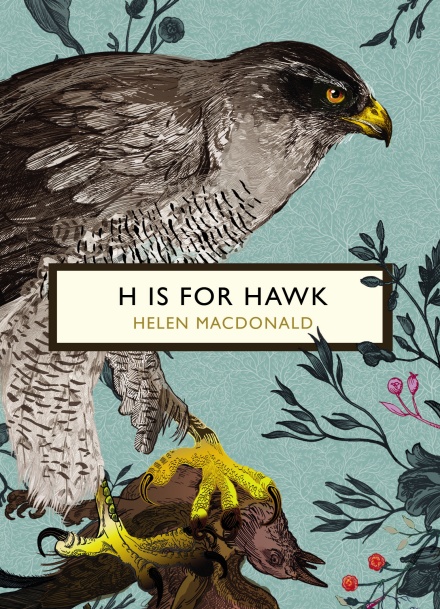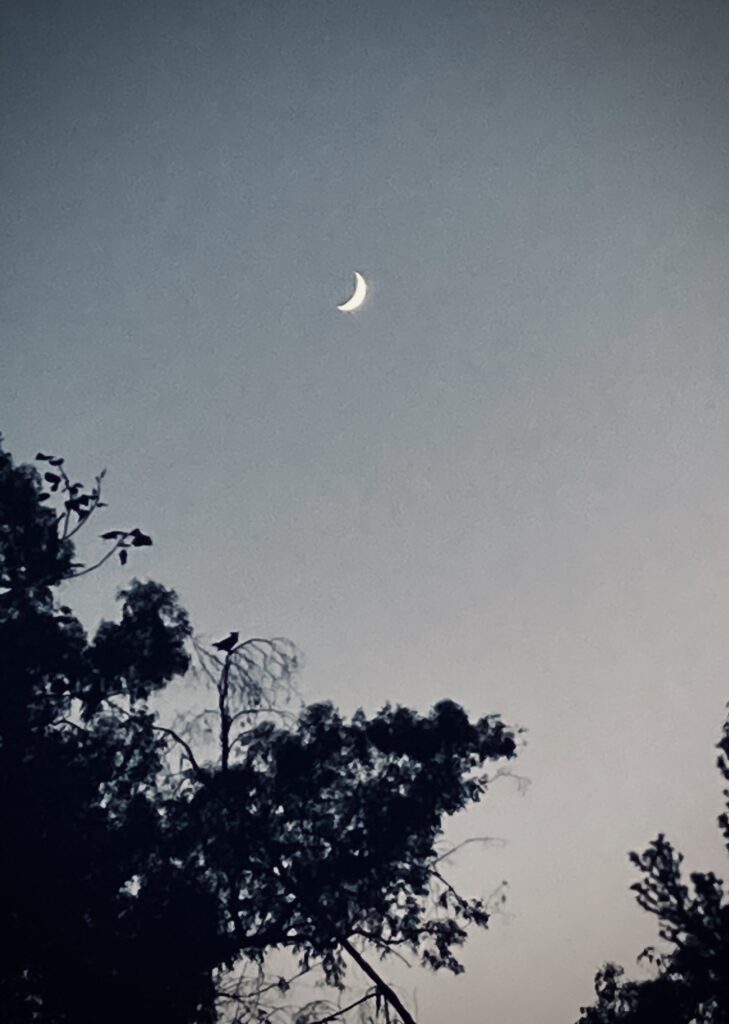I came to Helen Macdonald’s work late—long after H is for Hawk had graced bestseller lists and garnered awards and been subject to breathless recommendations from friends. Somehow these trappings make me less likely to pick something up in the moment, until I get to it years later via my own circuitous means and become a breathless proponent myself.
In this case, those means involved stumbling across a gorgeous edition in the gift shop of the V&A during a trip to London in 2016.
I mean, look at it. It’s perfect.

It was also the right size. It fit my palm like a secret, and I carted it out of the museum in triumph.
The next few days were a blur. I downed the book like the titular goshawk, fierce and ravenous. It danced through so many threads of literature and loss and nature, cataloguing the strange places we go when we can’t cope with our own grief and must instead contextualize it within older networks of meaning. I absolutely fell in love with it. It mapped a landscape of parental loss I’d been dreading my whole life and, in doing so, humbled me with gratitude.
I’m probably due a re-read.
Macdonald has a new essay collection out this year called Vesper Flights. I’d tuned into a chat about it between her and Robin Wall Kimmerer (of Braiding Sweetgrass fame) earlier in Quarantine, but hadn’t been able to give it my full attention. The gist I left with, though, was that in addition to being a magnificent writer, Macdonald is also one of those people who feel deeply human when placed in front of an audience—funny and self-effacing and smart and real. It’s something I put a lot of stock in, that little waggle of the antennae that says “Here. Pay attention. These are your people.”
Imagine my delight on Monday when I found I’d forgotten about buying tickets to hear her in conversation with Jeff VanderMeer! Smart move, Past Lucy.
The conversation was wonderful. Macdonald endeared herself to me forever by revealing that while all her childhood friends were pasting rock stars on their bedroom walls, she venerated pictures of kestrels. As someone who scrawled lines from Dryden on her wall as a youth and never understood the appeal of Jonathan Taylor Thomas, I relate.
Early in the conversation VanderMeer asked “Do your enthusiasms find you? Or do you find them?” This kind of emergent question feels loud right now. It’s not so much that I’m on the warpath, hunting down a particular line of inquiry, rather that every book I open seems to suddenly be in conversation with everything else I’ve read in a given week. The threads start talking to each other. This is always The Sign.
Macdonald and VanderMeer also explored the dangers of projecting human emotion onto animals, leading Macdonald to refer to the “strange unselfing that happens when you see a wild creature.” What was the last thing that unselfed me? The great horned owls calling to each other in the meadow preserve. The western fence lizards skittering across the drive. The moon, unexpected and sharp, hanging low in the sky.
When an audience member asked if she’d be returning to writing poetry, she paused. Her poetry, she said, had been a sort of lovechild of cryptic crosswords and abstract expressionism (HI WOW HELLO). But she went on to explain that “things are really urgent now” and that essays were where she wanted to focus her energy because they allowed her to speak to the current moment most directly. “Essays,” she said, “are about being puzzled by something and needing to work it out.”
Of course the mediums we chose reflect the times we live in—I feel it in my frustration with the glacial pace of making comics—but it was refreshing to hear someone say it outright. It feels adjacent to how I’ve been approaching Rambles on Patreon. Crafting written updates was taking too long. Talking is swift and personal and correct for what I’m trying to do in that space. But it’s been two years and now I’m beginning to wonder what comes next.
Toward the end of the discussion, someone asked a question about how we can balance a sense of wonder at the natural world with the immense losses of climate change. Macdonald was blunt in her response: sometimes wonder simply isn’t accessible. Sometimes we are flattened by grief.
“The banked grief at the back,” she called it, and something cracked open in my chest. This was the backbone of H is for Hawk: “You grieve things because they should be there and they’re not.”
